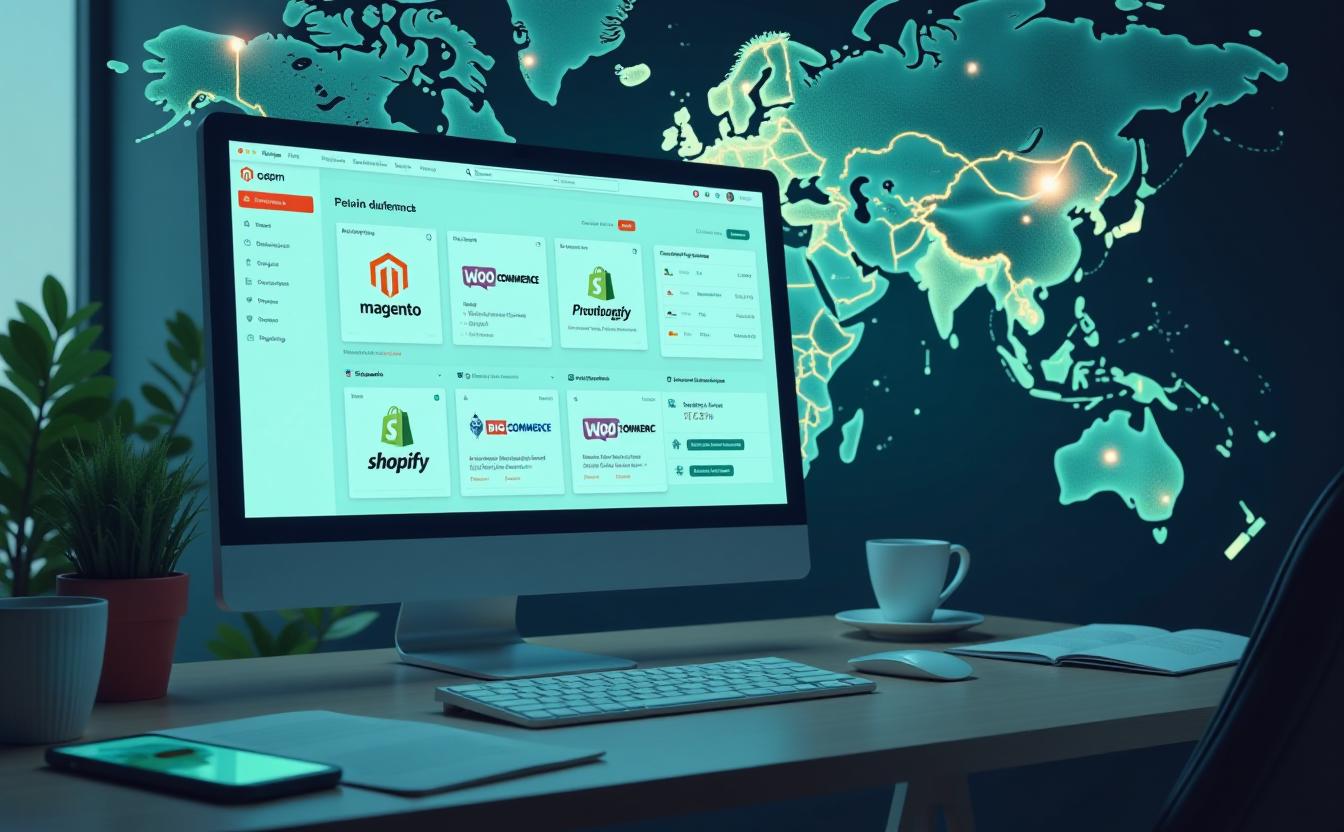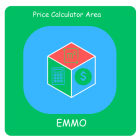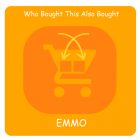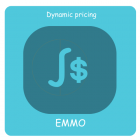Best E-Commerce Platforms Of 2025

The Best E-Commerce Platforms for 2025
Table Of Content
- The Best E-Commerce Platforms
- What Is an E-Commerce Platform in 2025?
- How To Choose the Best E-Commerce Platform in 2025
- Essential E-Commerce Features for 2025
- Types of E-Commerce Platforms for 2025
- Cloud-based E-Commerce Platforms
- Methodology for 2025 E-Commerce Platform Review
- Frequently Asked Questions (FAQs)
The Best E-Commerce Platforms
- Wix: Best for intuitive site building
- Shopify: Best for AI-powered customization
- Shift4Shop: Best for small businesses
- Square Online: Best for seamless omnichannel integration
- BigCommerce: Best for scaling online stores
- Weebly: Best for ease of use
- Squarespace: Best for creative design
- Ecwid: Best for avoiding transaction fees
- WooCommerce: Best for WordPress users
- CoreCommerce: Best for existing websites
What Is an E-Commerce Platform in 2025?
An e-commerce platform in 2025 goes beyond just software; it’s a comprehensive solution that enables businesses to create, manage, and optimize their online stores. These platforms offer everything from secure hosting and integrated payment processing to customizable website design and advanced marketing tools.
Leading platforms, such as Magento, Shopify, WooCommerce, and BigCommerce, provide a variety of features and seamless integrations, allowing businesses to tailor their stores to meet specific needs. With user-friendly interfaces and advanced automation options, modern e-commerce platforms ensure you can quickly launch your store and focus on sca
The best platforms for 2025 are adaptable, offering AI-driven insights, flexible customizations, and omnichannel support to keep businesses competitive in the fast-evolving digital landscape.
How To Choose the Best E-Commerce Platform in 2025
In 2025, the landscape of e-commerce platforms is more competitive than ever, with various options offering powerful tools to help businesses grow. However, choosing the best platform depends on understanding your specific business needs. What works for one seller might not work for another. For instance, if your store has a limited inventory, you may not require a platform designed for managing thousands of products.
Here are the key factors to consider when selecting the best e-commerce platform:
- Pricing: Affordability is critical for startups and small businesses. Evaluate both the platform’s subscription fees and the transaction processing rates. Some platforms offer low monthly fees but have higher transaction costs, so it’s essential to align pricing with your expected sales volume.
- Ease of Use: An intuitive interface is a must. The best platforms provide drag-and-drop editors and easy-to-use store management tools, making it simple to set up and run your store, even without technical expertise.
- Features and Inclusions: Compare platform features, such as free domain registration, SSL certificates, email marketing tools, and drop-shipping support. Make sure the platform offers the tools you need for success.
- Capabilities: Consider what your business sells. Not all platforms support digital goods, subscription services, or online courses. Ensure the platform aligns with your product and service offerings before committing.
- Design and Customization: Look for platforms offering a variety of pre-built themes and templates, along with customization options. You should be able to create a professional-looking store without needing advanced coding skills.
- Customer Support: When issues arise, quality customer support is essential. Choose a platform that offers support through channels you prefer, such as live chat, phone, or email, with available hours that match your business needs.
Essential E-Commerce Features for 2025
Whether you’re launching a new online store or expanding an existing one, there are key features every e-commerce platform should provide to help your business thrive. Here's what to look for in 2025:
- Payment Processing: The ability to securely accept payments online is non-negotiable. Ensure the platform supports multiple payment options such as credit cards, digital wallets (Apple Pay, Google Pay), and cryptocurrency. Integration with third-party payment processors or the option to use a built-in payment system is crucial.
- Shipping: Efficient shipping integrations are vital. Platforms should support various shipping methods, including standard, express, and freight shipping, with real-time carrier rate calculations for a seamless logistics experience.
- Inventory Management: Robust inventory tools help avoid stockouts or overselling. Look for systems that support real-time tracking, low-stock alerts, and automatic stock updates, especially if you manage a large inventory or sell across multiple channels.
- Customer Management: The best platforms include customer relationship management (CRM) tools, enabling features like customer profiles, wishlists, order tracking, and loyalty programs to boost customer retention and satisfaction.
- Analytics: Advanced analytics tools are essential for tracking performance. Ensure the platform offers detailed insights into sales trends, customer behavior, conversion rates, and lifetime value, allowing data-driven decisions to optimize your business.
- Marketing: A good e-commerce platform supports integrated marketing tools, such as SEO optimization, email campaigns, abandoned cart recovery, and social media integrations, enabling you to attract and convert more customers.
- Product Management: Effective product management tools are crucial. Look for features like product variants, SKU management, product reviews, and bulk editing capabilities to streamline catalog updates.
- Mobile Optimization: With mobile commerce growing, your store needs to be mobile-responsive. Ensure the platform automatically adjusts site layouts for mobile devices to provide a seamless experience for users on smartphones and tablets.
- Security: Protect your customers and your business with strong security measures. Look for platforms that include SSL certificates, two-factor authentication, fraud detection, and PCI DSS compliance for secure transactions.
Types of E-Commerce Platforms for 2025
E-commerce platforms generally fall into two categories: cloud-based and self-hosted. Each type offers unique benefits and challenges that suit different business needs. Here's a breakdown of both:
Self-hosted E-Commerce Platforms
| PROS | CONS |
|---|---|
| You have more control over your site. | You’re responsible for maintaining your own server. |
| You can scale your site more easily. | You have to pay for hosting and a domain name. |
| You can choose your own hosting provider. | You need to be more tech-savvy. |
Cloud-based E-Commerce Platforms
| PROS | CONS |
|---|---|
| You don’t have to worry about server maintenance. | You have less control over your site. |
| You get more features and support from the platform provider. | You can’t scale your site as easily. |
| You don’t need to be as tech-savvy. | You have to pay for the platform and for a domain name. |
Methodology for 2025 E-Commerce Platform Review
To determine the best e-commerce platforms, we evaluated 38 contenders across the industry and compared 53 different criteria. These included pricing, features, and ease of use. We also analyzed inventory management, multichannel selling capabilities, and other key factors. Below are the key metrics and scoring weights we used:
| Decision Factor | Scoring Weight | Description |
|---|---|---|
| E-Commerce Features | 25% | We tested shopping carts, buy buttons, and built online stores full of products to evaluate each platform’s e-commerce features. |
| Site-Building Tools | 20% | We created e-commerce sites and tested features like email marketing templates, site editors, and SEO tools. |
| Expert Score | 20% | Our experts evaluated the ease of use, value, and popularity of each platform, focusing on uniqueness and practical features. |
| Payment Processing and Accounting | 15% | We reviewed payment processing options, physical POS integrations, and extra fees to assess merchant flexibility. |
| Pricing and Value | 10% | We evaluated the cost and value of each plan, including the benefits of free and paid tiers with respect to feature access. |
| Service and Support | 10% | We considered the availability of live support agents (phone, chat, email) and the presence of a comprehensive help center. |
Frequently Asked Questions (FAQs)
Which e-commerce platform is best for dropshipping?
As of 2025, Shopify remains a top choice for dropshipping, especially after acquiring Oberlo, a leading dropshipping app. This integration allows seamless product importing to your store, enhancing customer purchasing experiences.
What is the best B2B e-commerce platform?
Wix has been recognized as the best B2B e-commerce platform in 2025. For a comprehensive comparison, check our guide on the Best B2B E-commerce Platforms to find the perfect solution for your business needs.
How do I build an e-commerce website?
Building an e-commerce website can be accomplished through various methods. You can use platforms like Shopify or BigCommerce for a complete package. Alternatively, WordPress with WooCommerce or Ecwid plugins offers flexibility. DIY website builders such as Squarespace are also popular options.
What is a headless e-commerce platform?
A headless e-commerce platform separates the front-end (the "head") from the back-end (the "body") that handles e-commerce functionality. This architecture allows for greater flexibility and customization but may require more technical expertise to set up and manage.
What is an open-source e-commerce platform?
Open-source e-commerce platforms allow users to access and modify the underlying code of their website. This is beneficial for adding custom features or integrations. WooCommerce is a well-known example of a popular open-source pla









